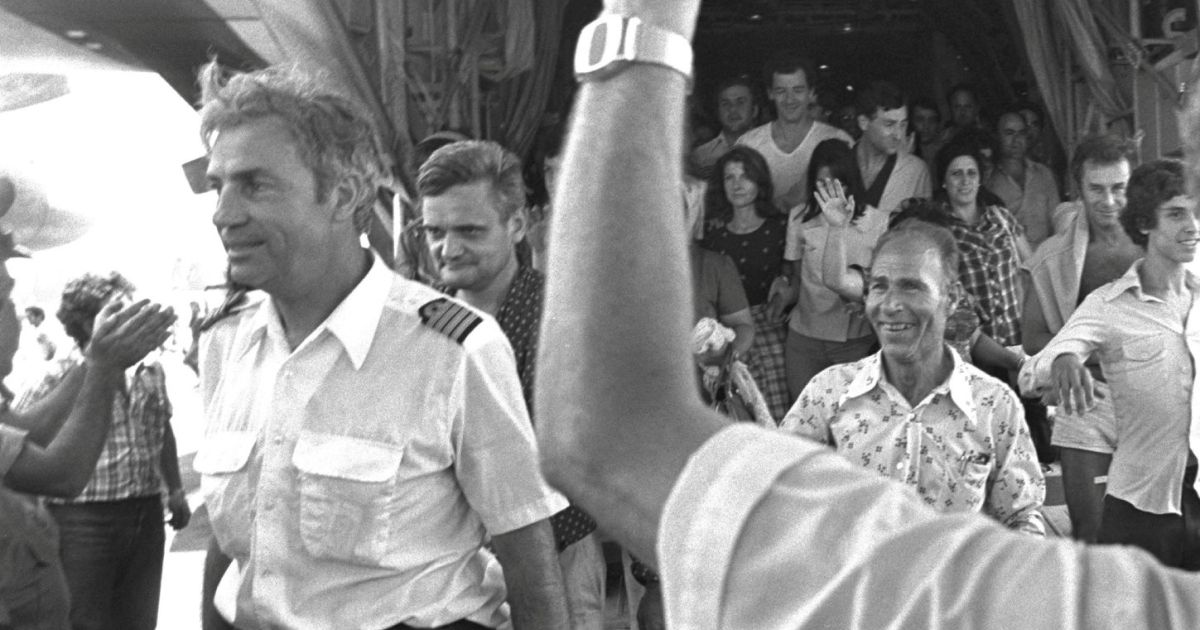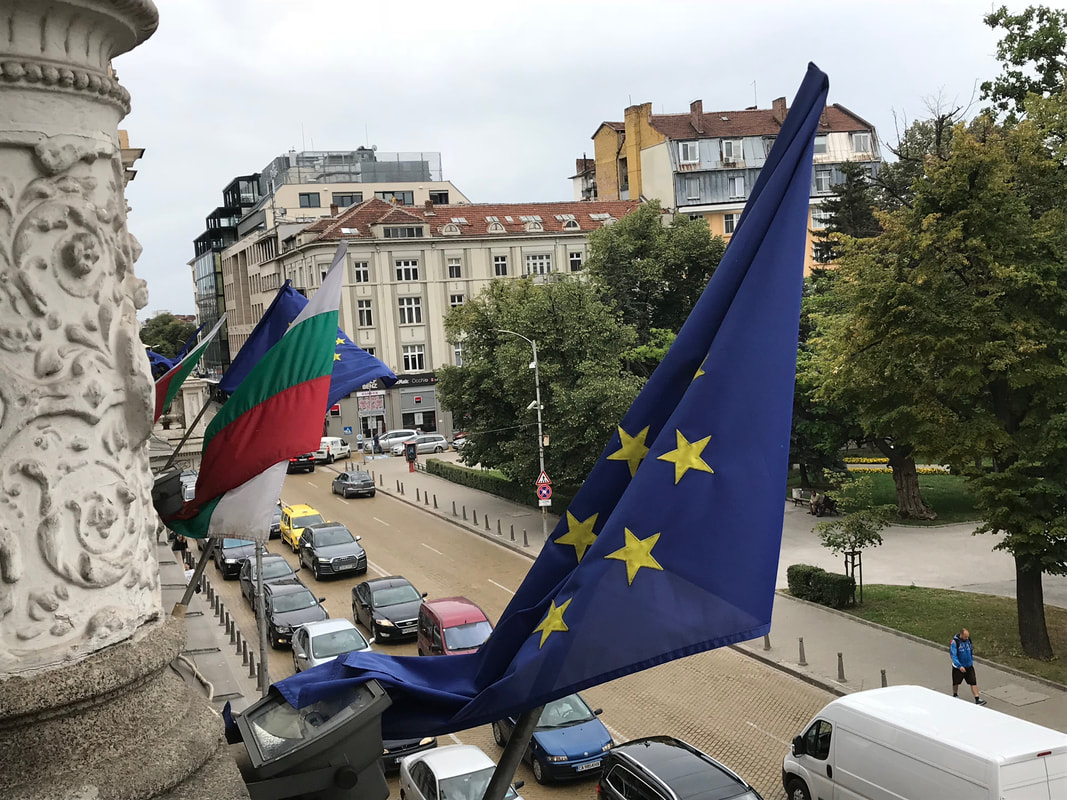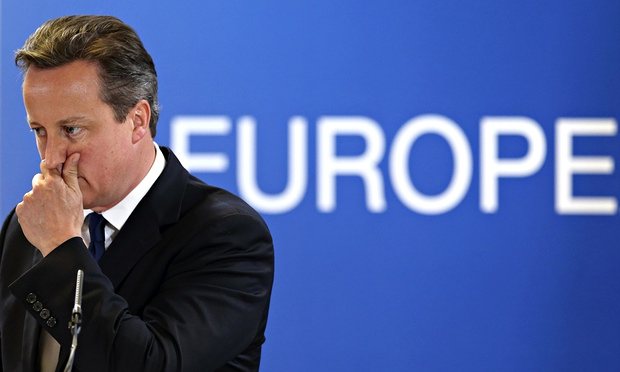|
A few weeks ago, Michel Bacos passed away at age ninety-four. It got some media attention, but not more than a few small obituaries and twitter references. I briefly mentioned it, but this week a video snippet of his funeral service appeared online and it prompted me to write about the man and his actions in a bit more detail.
Bacos had a colourful life. French, but born in Egypt, he fought during World War II and went on to become a pilot for Air France. In that capacity Bacos found himself as the captain of the ill-fated Flight 139, which on June 27, 1976, was scheduled to fly from Tel Aviv to Paris with a short stop over in Athens. There, a gang of German and Palestinian terrorists boarded and hijacked the plane and directed it to first Benghazi in Libya and eventually to Entebbe in Uganda. The plot thickened there. It turned out the hijackers were getting strong support from then Uganda dictator Idi Amin. Over the course of a few days the pressure was turned up as the terrorists sought not only a dollar ransom, but the release of a large number of Palestinian terrorists imprisoned in Israel. It put the government of then Prime Minister Yitzhak Rabin in a very difficult spot given its stance on non-negotiation with terrorists and the long distance to Uganda made any rescue attempt next to impossible. After only a few days, the crisis worsened as the Israeli and Jewish passengers were forcibly separated from the rest of the travellers, resulting in scenes reminiscent of the Holocaust. Not long thereafter, the non-Israeli contingent was released. At that point captain Bacos and his crew were given the option by the terrorists to leave too, but Bacos did not even consider it for a second and opted to stay with his passengers. He did give that option to his crew, all of who unanimously agreed to stay on. Given the likelihood of a very bloody ending to the affair, an extremely brave and commendable move and one that would put Bacos in the history books. The captain himself did not think that much of it when he commented later: “There was no way we were going to leave – we were staying with the passengers to the end,” he said. “This was a matter of conscience, professionalism and morality" After all diplomatic efforts had been exhausted, the Israeli government launched one of the most daring rescue operations ever, liberating the hostages and crew, killing all of the hostage takers as well as destroying a significant portion of the Ugandan air force. During the operation three hostages were killed, as was one of the Israeli commandos, Yoni Nethanyahu, the older brother of the current prime minister. One passenger, Dora Bloch, who had been evacuated to a hospital prior to the rescue mission was subsequently murdered by Amin's security forces. Bacos was honoured across the globe and his resumed work as captain not long after the drama, insisting his first flight back on the job would be to Israel. His heroism and the natural way in which he assumed full responsibility for his passengers under the most adverse circumstances are of course deeply commendable. It made him a hero and an example how to keep the moral high ground, even in a situation where you may not get out alive. But at a deeper level there is more to the move Bacos made. What he did was essentially what most Europeans failed to do during the Second World War. Taking a stance and doing the right thing when ordinary Jewish citizens are being singled out for death just because of who they are was exactly what was lacking in most of Europe. And it was exactly that which contributed to the death of six million Jews. Bacos must have sensed his actions had a far deeper meaning beyond just acting morally during a plane hijack. He may never have found the right way to express it, but if you see the short video of his funeral you sense what is going on. You see French flags, a priest, some French veterans, but you hear a national anthem that is not French at all. The anthem was played at Bacos’ own special request and it is the one national anthem that expresses hope. The hope.
0 Comments
By contrasting nationalism with imperialism it becomes clear why the first is so much more preferable, says Yoram Hazony in a recent book
As we are bracing ourselves for the finale of Britain’s Brexit move, there is a plethora of opinions and articles telling us why this is a reckless move, yet there are very few cogent arguments as to why exiting the European Union (EU) makes total and logical sense. The Israeli writer and academic Yoram Hazony does not make the Brexit case per se, but he sets out a compelling argument that explains the evil that has befallen mankind from empires that have subdued nationalism in favour of all encompassing dogmatic visions of a better future. One does not have to look very far – Hitler, Stalin – to find some real life evidence and Hazony makes it clear that none of these men espoused nationalist instincts, in fact they sought to destroy these and therefore any comparison of present day nationalist tendencies are nowhere close to fascism or Nazism. Hazony explains the continuum of the tribe that amalgamates with other tribes, in turn to form a nation, which in a possible next step could become subordinated by a larger empire. And while some may think it is rich to compare the former Soviet Union to the European Union, the dynamics are similar: a dominant nation leads the formation of a union, gives it an ideological foundation that is mostly unquestionable and the resulting combination will lead us to some sort of nirvana where the sovereignty of all constituent parts has been eroded, because in a perfect world you do not really need it. And where the Soviet Union was driven by Russia, in the new world Germany is more or less the force of empire: that which it was not able to do by force, it now has accomplished through ‘peaceful means’. I would add that the EU is not primarily driven by Germany; there is a Franco-German axis that has been moving this process forward. In that process in particular Belgium and Luxembourg act as the willing henchmen (think Juncker and Verhofstadt) executing the project and dragging along the naysayers. The essence of the book is in how we need to understand ‘nationalism’ in positive terms as something that has helped build great nations and Hazony keeps going back to the examples of the British, French and Dutch ventures as they emerged and enabled phenomenal social, economic and cultural growth. He is right and it is also why we are seeing strong anti-EU movements in each of these very countries. As a born Dutchman, I fully subscribe to his positions, as the blood and toil of the 80-year war (1568-1648) that created its independence and unique culture (the consensus model that aligned Protestants and Catholics) has been signed away without much of a proper public consultation or vote. In the 1980s and 1990s we were taught and we all believed that ‘Europe’ was a good thing, a wealth and peace creator and no one in his or her right mind should question it. We consequently did not. My arrival in Britain 1990 however provided me with a crash course in the downside of the European project, poignantly summarized by one of my erstwhile British colleagues who asked me “When did the European Economic Union as it was always known become the European Union?” I had no answer, it just happened. Now that I am based in Canada and travel back to Europe regularly it has been bewildering for instance to see military on the streets of Athens to enforce the country’s debt restructuring. It has essentially turned Greece into some sort of indentured servant owned by the EU, mostly as it turns out by Germany. The omnipresent EU flag is now flown alongside the national flags and the question is when will it replace native colours entirely? At least the Dutch have recently decided to display their ‘red-white-blue’ in parliament to at least have a sense of national identity in the top-down avalanche of Euro-blue. Here in Canada I often wonder how all the liberals who speak so approvingly of the European project would settle in a world where their capital was in Dallas instead of Ottawa, their currency was the Americano and where, despite all well intentioned assurances, an American elite would drive most if not all of the decision making? The point Hazony makes of course is that the more authority you let go and delegate upwards, the likelier it is you will never get it back. In the process national identities and decision making erode and at the local tribal level the average citizen will have a hard time to identify with the group and leadership that now apparently has come to represent them. The Brits consequently have taken an entirely logical step to try and release them from the imperial EU project. Maybe they can provide a way, much like Thatcher laid out, where independent European nations live and work together without such crushing tools as one currency or one political center. An eight percent blow to British GDP may in the end be a small price to pay for freedom and avoid the demise of their nation. The book lays out a clear argument, but in the final chapters Hazony takes his reasoning one step further by explaining how this love of empire leads inevitably to deep criticism (and eventually hate) for countries that cling to and fight for their national identity and freedom. The USA, Hungary and Poland are getting the steady stream of abuse as we all know, but in no other case is this meted out as regularly and as harshly as against Israel. The Jewish nation has been so successful for close to 4,000 years precisely because it never sought empire, as instructed in the bible where good neighbourly relations where laid out as a guiding principle. Jews also learned that no nation would lift a finger to prevent their annihilation, their justifiable claim to security has forever been shaped by that one experience, the Holocaust. The contempt for Israel is – apart from the reflexive and deep rooted anti-Semitism – driven by looking down on the Jews’ outdated attachment to the concept of nation in a world where open borders and joint sovereignty is the way forward, according to the ‘European elites’. Hazony puts it succinctly when he argues that Auschwitz helped create Israel, but Israel’s critics argue that Jews by standing up for their nation’s borders and freedom have essentially become Auschwitz. Think that one through. Hazony’s book is a thought provoking and refreshing read. So it is sobering to see how far the European empire has moved ahead and how deep the hate is against those nations that are swimming against the tide. Yet it may not be too late, but unwinding the EU will be an unpleasant and potentially violent (Brexit, the riots in Paris) process. Letting it go forward unchecked however will not be unpleasant, it will be dark. Photo: the EU blue alongside the Bulgarian flag in Sofia, June 2018. So in many ways my life and career are a direct result of British engagement with Europe. In anticipation of the formal 1992 creation of the European Union, British banks started to evaluate their continental strategies and some, for the first time, embarked on recruiting graduates from across the channel. By sheer coincidence I ran into Barclays Bank at a job fair – not coincidentally in Brussels – and was asked to apply for their European Management Development Program. I did and so my first job application landed me right in the City of London, learning the ropes of banking at one of its more venerable institutions.
The interesting thing was that my new British colleagues ridiculed their nation’s and their employers’ European project and where somewhat miffed at all the opportunities and goodies that were thrown in the direction of the bank’s ten ‘Euro-recruits’. From day one I was lectured on the conspiracy coming from Brussels to subvert British freedoms, abolish pound sterling and eventually dismantle Westminster. This was long before immigration concerns and Nigel Farage. These were the last days of Margaret Thatcher whose career essentially ended over her views on Europe and the infamous campaign by The Sun newspaper to dispense some advice to the President of the European Commission on where to put his European Currency Unit as it was called in those days. Having grown up in a nation devastated by World War II where European co-operation was essential to economic recovery, there was never any debate, discussion, let alone an inkling that there might be something negative to say about European co-operation and integration. On the contrary, the late 80s were a time when the advent of the single market would bring more freedoms, riches and success for those that participated in it and my instant recruitment into London was the undeniable evidence of that. Critical thinking about the European Union was non-existent. Imagine my initial surprise at the British bitterness about it all. That said, it did change my thinking and my crash course in Euroskepticism allowed me to see that giving up your currency would mean giving up your ability to be the master of your own destiny as Greece has now painfully learned. Globalization is great and opens the door to many opportunities, but to hand its management to unelected bodies far removed from the nation state will inevitably open the door to some unintended consequences. Even with Thatcher disappearing from the scene, the debate in Britain raged on. And now, some twenty-five years later that British suspicion about the entire project has invaded many parts of continental Europe and has been adopted by emerging political movements on both the left and the right. Deep frustrations over unrestricted immigration and the economy at large are turbocharging populist sentiment and the EU is the first in the line of fire as an establishment project seen to have been instrumental in undermining the safety and security blankets that many across Europe had come to take for granted. Protest and anger are thus not only informed by evidence, but equally by ‘nostalgia’ something populist politicians love to plug into. So the Brexit vote should not come as a surprise at all despite the near hysteria that enveloped the media and markets almost immediately after the results were confirmed. The consequent demise of both David Cameron and Jeremy Corbyn were also long in the making, the Brexit vote just accelerated it. And as such last week’s events should be welcomed as a timely wake-up call for Europe to come to terms with deep economic shifts, nearby war and chaos (Ukraine, Syria) and the festering wounds inflicted by harsh monetary policies, again Greece, but who is next? European commissioner Frans Timmermans today on his Facebook page admitted that the time has arrived to be ‘brutally honest’ and that the Brexit vote is a symptom of the feeling that ‘we have lost control of our destinies’. As much as the vote shook up Britain, it will give an equal boost for re-examination in Brussels. So that is why we should welcome what happened in Britain last week. Although there will be quite some chaos in the weeks to come, think financial turbulence and purges in the British Labour and Conservative parties, there will and has to be a way out of this mess. It will consist of finding a ways to re-establish British relations with Europe, which will neither end nor remain the same, but more likely and hopefully will find some new middle ground. Britain cannot afford to let a referendum – a terrible tool to set a political course at the best of times – determine its future direction. Once the internal bloodletting is done, possibly followed by a general election, serious discussions can start without invoking the dreaded Article 50, which will set a timetable for a British exit. This process will help Europe find its balance and involve some serious re-examination on issues such as centralized governance, immigration, security and macro-economic policies. Yes, I refuse to believe that Britain is out and that we are headed for some sort of dark age. But even if that were to happen there will be a route to some new equilibrium. Things will not be easy, but at the very least we are all awake now and ready to participate in framing a new future for Britain, Europe and the world at large. My induction in global thinking decades ago in London does not allow me to believe otherwise. Postscript on July 7, 2016: it is of course quite extraordinary and maybe not coincidental that one of the very colleagues I referred to here and with whom I worked together in my first year at Barclays is none other than Andrea Leadsom (née Salmon), one of the two remaining contenders for the conservative leadership. |
Archives
April 2020
Categories
All
|



 RSS Feed
RSS Feed